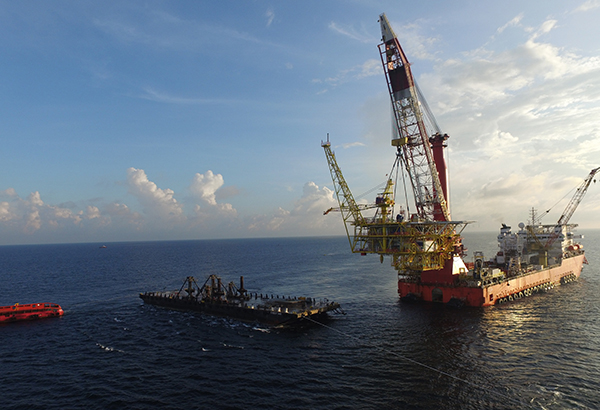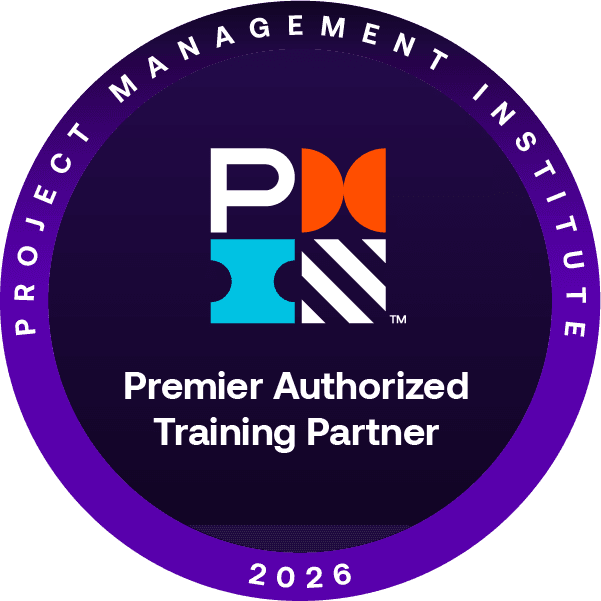
A PMI® Registered Training Course
Advanced Heavy Lifting &
Transportation Techniques
for Onshore & Offshore Projects
Best Practices and Innovative Technologies

Scheduled Dates
Classroom
| 14-18 Sep 2026 | Dubai - UAE | $5,950 | RESERVE A SEAT |
| 15-19 Mar 2027 | Dubai - UAE | $5,950 | RESERVE A SEAT |
Online
| 27-31 Jul 2026 | Online | $3,950 | RESERVE A SEAT |
| 15-19 Mar 2027 | Online | $3,950 | RESERVE A SEAT |
Would an alternative date be more suitable?
We offer a variety of tailored training options, customized to meet your organisation's needs. Delivered anytime, anywhere, we make it easy to bring expert training directly to your team.
Why Choose this Training Course?
This training course on Advanced Heavy Lifting & Transportation Techniques for Onshore & Offshore Projects will highlight how the extra-heavy cargo can be safely lifted and transported onshore and offshore. Such sold base of knowledge offers considerable support to engineers and technicians working in onshore and offshore projects. The list of skills that will be gained from this course includes; planning, identifying the hazards, assessing the criticality and risks, monitoring and finally reporting these projects.
The training course will also emphasize the application of best practices advised by the relevant various international standards. Besides, the course surely will have a considerable impact on both; attendants and organizations who decided to select it.
This PetroKnowledge training course will feature:
- Maritime & land architecture and environmental conditions affecting the heavy lifting and transportation projects.
- The best practices advised by international standards for the safety of personnel and equipment when conducting these projects.
- The innovation in techniques and equipment helpful for successive heavy lifting and transportation projects.
- The economics of heavy lifting and transportation projects
What are the Goals?
By the end of this training course on Advanced Heavy Lifting & Transportation Techniques for Onshore & Offshore Projects, participants will be able to:
- Value the importance of extra heavy lifting and transportation projects.
- Identify the various types of heavy lifting and transportation equipment.
- Advice the application of multiple accessories and attachments used with these projects.
- Participate in preparing plans for such critical projects.
- Conduct the equipment inspections before the execution of these projects.
- Acquire the knowledge related to hazards and risks to such projects.
- React safely in urgent situations.
- Apply the safety regulations advised by the international standards
- Explain the factors affecting heavy cargo stability during lifting and transportation.
- Write full record reports for such critical projects.
Who is this Training Course for?
This intensive training course on Advanced Heavy Lifting & Transportation Techniques for Onshore & Offshore Projects is suitable for a wide range of professionals but will greatly benefit:
- Heavy Lifting Projects Engineers and Technicians
- Heavy Transport Projects Engineers and Technicians
- Heavy Cranes Inspectors
- Heavy Lifting and Transportation Safety Engineers
- Lifting & Rigging Specialists
- Onshore & Offshore Project Engineers
- Onshore & Offshore Project Managers& Planners
- Operations Managers
- Transport & Lifting supervisors
- Onshore & Offshore Project Cargo Specialist
- Freight Forwarders
- Offshore Installation Engineers
How will this Training Course be Presented?
This training course will utilize a variety of proven adult learning techniques to ensure maximum understanding, comprehension and retention of the information presented. The daily course sections will be highly interactive and participative. It also involves detailed discussions accompanying the presentation of videos showing the up-to date technology in; heavy truck cranes, heavy transportation equipment, heavy load lifting and transportation safety. Delegates are strongly encouraged to bring and analyze data from their work domain; this adds greater relevancy to the content.
Organisational Impact
When a company sends their employees to attend this particular training course on Advanced Heavy Lifting & Transportation Techniques for Onshore & Offshore Projects, it expects that they will:
- Update their knowledge to be able to participate effectively in executing such critical projects of extra heavy cargo lifting and transportation.
- Add to their experience a considerable set of skills that reflect positively on organization activities and reputation.
- Work more efficiently in a team to implement such critical projects.
- Enhance their ability to act properly in hazardous situations.
- Contribute actively in organization H&S issues strongly related to such projects.
Personal Impact
When a company employee attends this particular Petroknowledge training course, he/she expects to:
- Enhance his job-related recent technical developments.
- Add a set of skills to his career profile.
- Improve his daily performance and work efficiency.
- Be more able to take proper decisions in everyday work problems solving.
- Enhance his self-learning ability
Daily Agenda
Day One: Onshore and Offshore Heavy Lifting Equipment
- Offshore lift vessels (heavy lift vessels, offshore installation vessels, offshore support vessels)
- Different types of vessel cranes (cargo, jib, gantry – the difference between pedestal and mast crane)
- Structure features of vessel cranes
- Effect of maritime environment conditions on cranes operation
- Different types of land cranes (mobile; carrier and boom; telescopic and lattice)
- Structure features of vessel cranes
- Effect of environment and ground conditions on cranes operation
- Lifting accessories
- Safety equipment in onshore and offshore heavy lift cranes
- Economics of onshore and offshore massive lifting projects
Day Two: Heavy Cargo Lifting with Multi-Cranes
- Related standards and regulations (ASTM, EN, ISO, BS)
- Factors affecting heavy lifting (load geometry, a center of gravity, supporting points, environmental and ground conditions)
- Plan for heavy-lift operation (cranes` models, the position of cranes, ground preparation, environment conditions, percent of crane’s rated capacity, boom length and angle, size and weight of the load, the position of lifting lugs, rigging, risk assessment)
- Control of lifting operation (possible hazards, the role of lift team, intercommunication, organization and supervision, computerized control of lift process)
- Example of heavy cargo lifting using two cranes
- Example of heavy cargo lifting with two main cranes and one tail crane.
Day Three: Onshore Extra Heavy Cargo Transportation
- Single and multimodal transport
- Planning for extra heavy cargo transportation (selection of; hauling mode equipment, roads - land topography, move speed and times – pilot cars – special traffic permits)
- Types of extra heavy cargo hauling trailers (self-propelled trailers – towed trailers)
- SPMT trailers (types, application and structure features
- Hauling trailer types (flatbed, expandable flatbed, drop deck, double drop low boy, double drop expandable floor deck)
- Cargo support on the move (Schnabel hitch - ridge beams – lowboy)
- Stability of extra heavy cargo hauling (reasons for SPMT tipping, ground bearing capacity – ground topography, tyres` stiffness – wind load – stability tips)
- Economics of onshore heavy cargo land transportation
- Examples of extra heavy cargo hauling
Day Four: Offshore Heavy Lifting and Shipping
- Basics of naval architecture and environmental conditions.
- Heavy Lift Ships: Lo-Lo, Flo-Flo heavy lift ships: (operation – structure features – application - categories of load-out)
- Motion analysis of vessels
- Preparing a Lift-on Lift-off (Lo-Lo) and (Ro-Ro) Lift Plans
- Loading, sailing or discharging vessels
- Ballasting barges (loading via the stern, making use of the tidal conditions, roll-on barges and categories of tide restricted conditions)
- Lifting cargo from the quay (ballasting and hoisting).
- Checklist for lashing and securing
- ISO versus DNVGL-ST-0378 standards
- Economics of heavy cargo offshore transportation
Day Five: Safety in Heavy Lifting and Transportation
- Safety awareness
- Hazards (EN ISO 17776, hazard identification, Job hazard analysis)
- Safety and environment-related standards (ISO 9001, ISO 1400)
- Risk matrix related standards (ISO 17776, ISO/Guide 73)
- Reporting accident and incident reporting
Certificate
- On successful completion of this Training Course / Online Training Course, a PetroKnowledge Certificate / E-Certificate will be awarded to the delegates.
- On successful completion of this PetroKnowledge training course, Certificate with eligible Professional Development Units (PDUs) / Contact Hours from Project Management Institute (PMI®), will be awarded to the delegates
Accreditation



